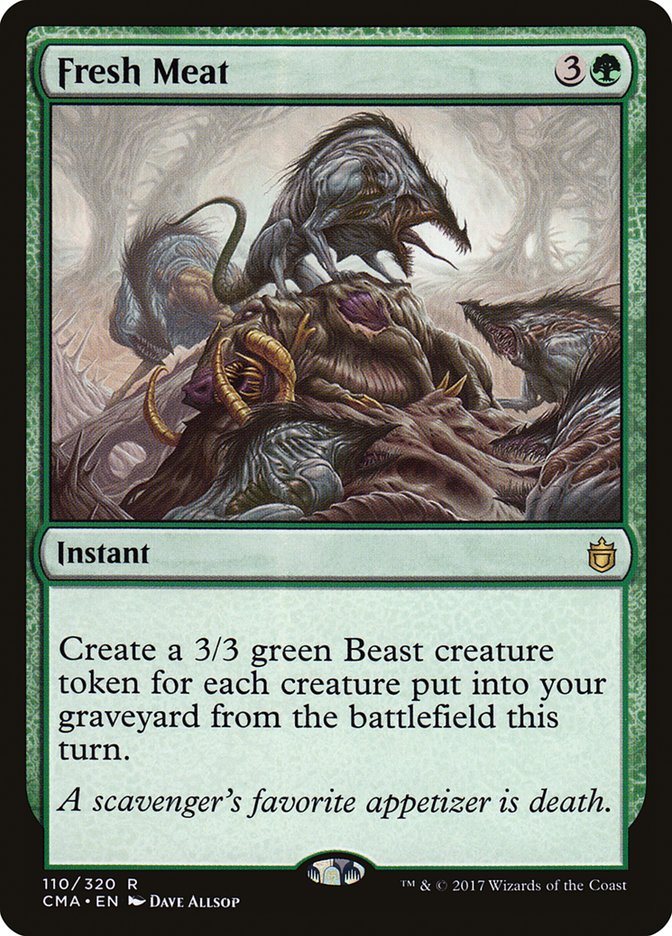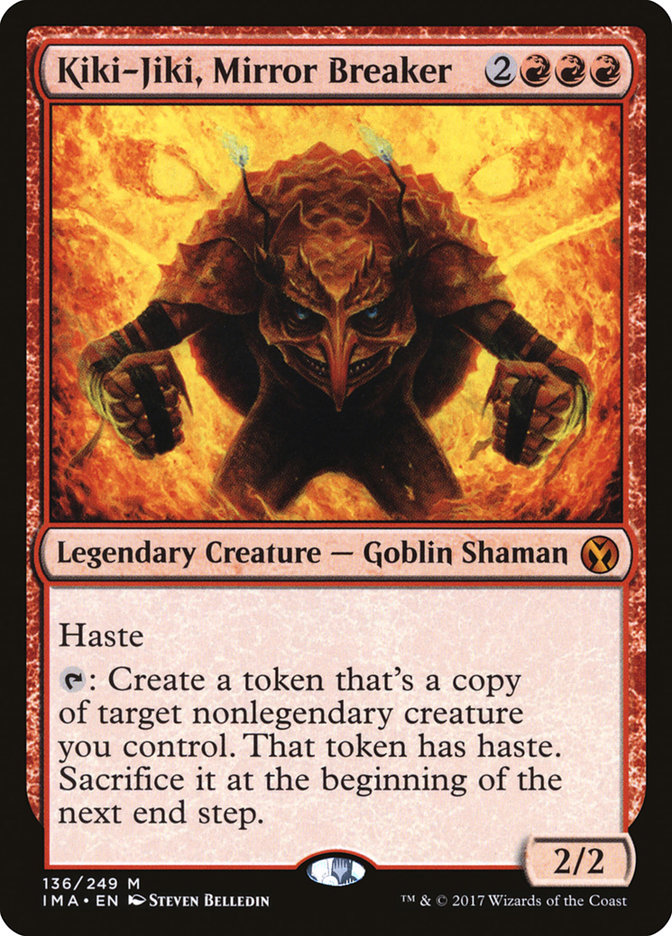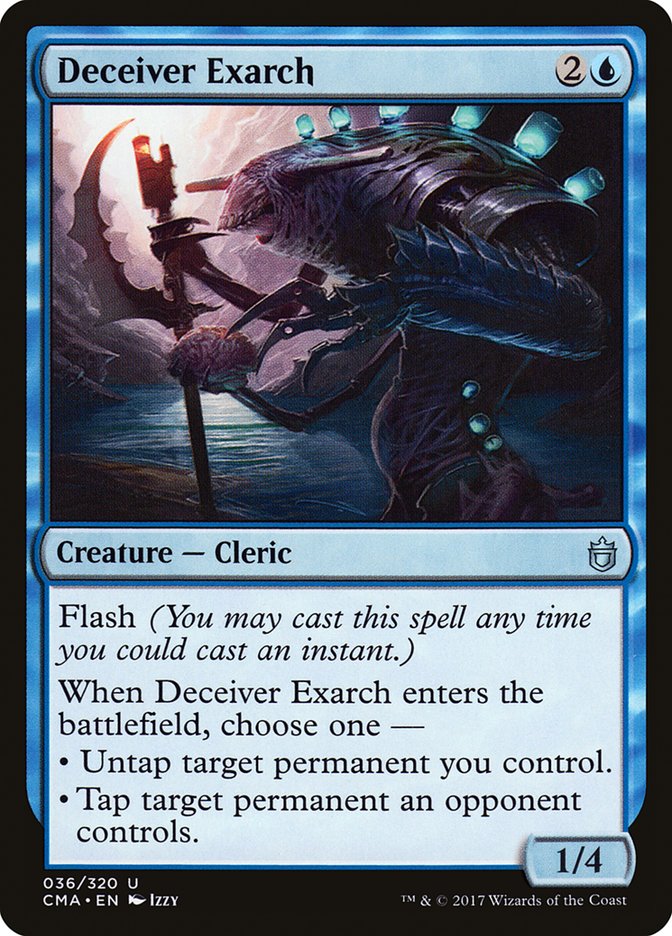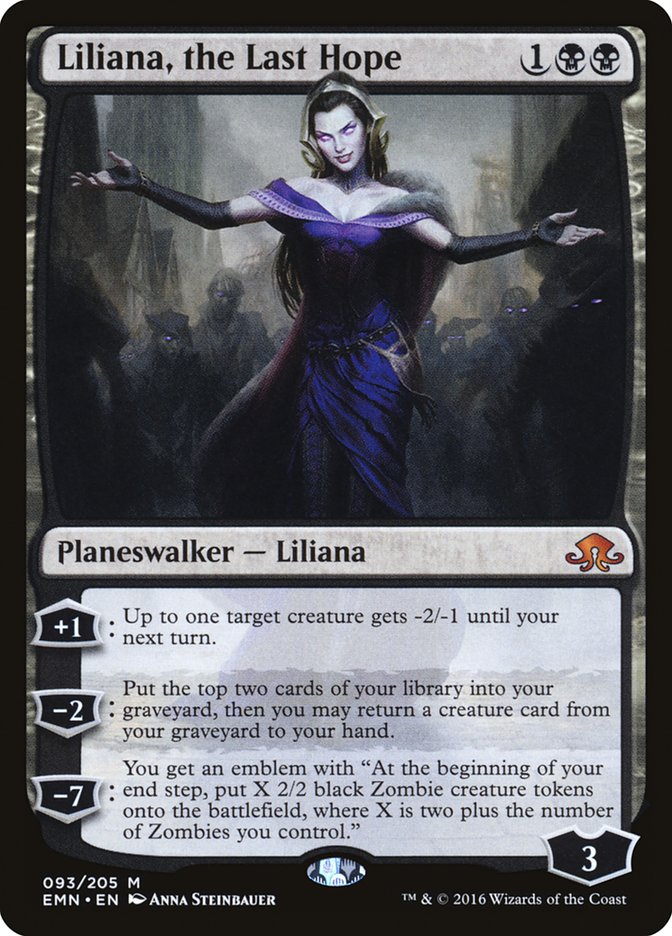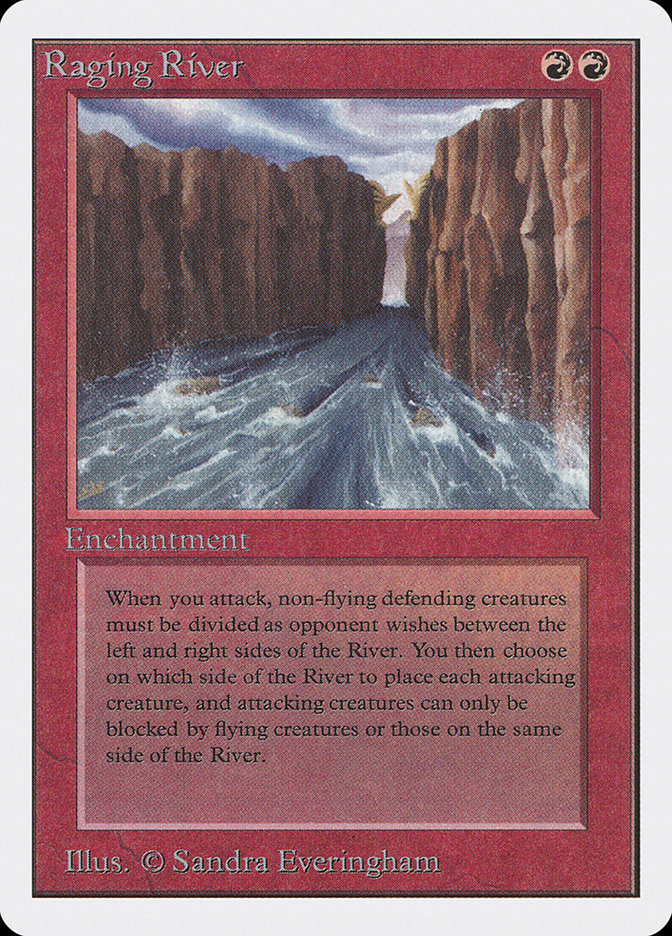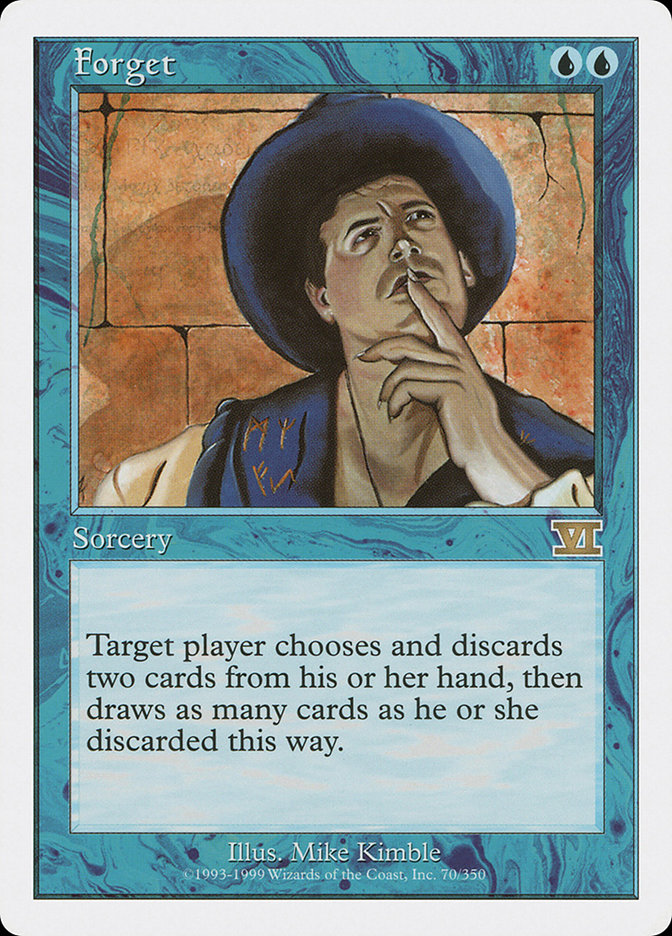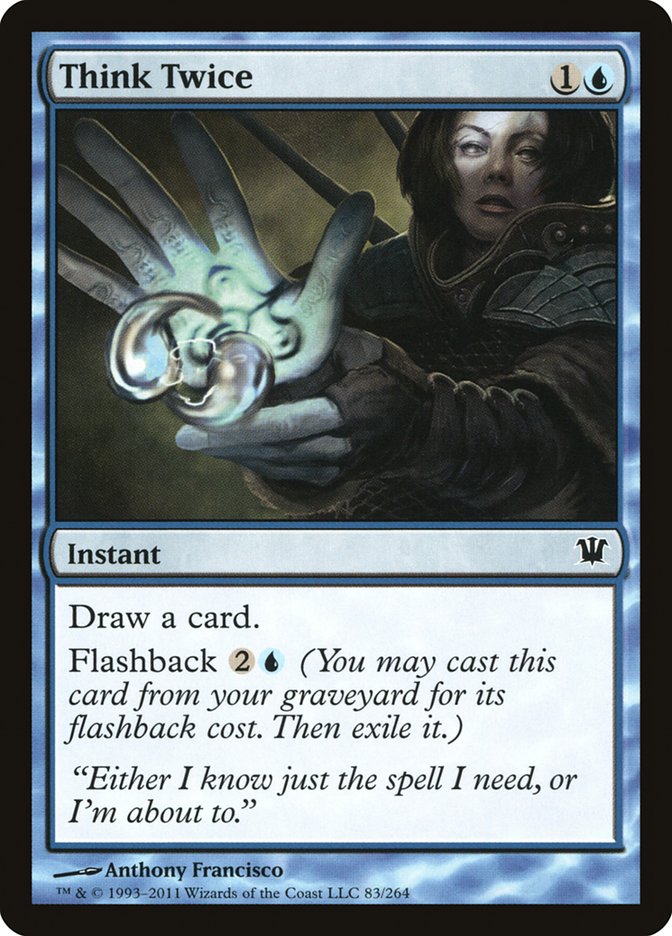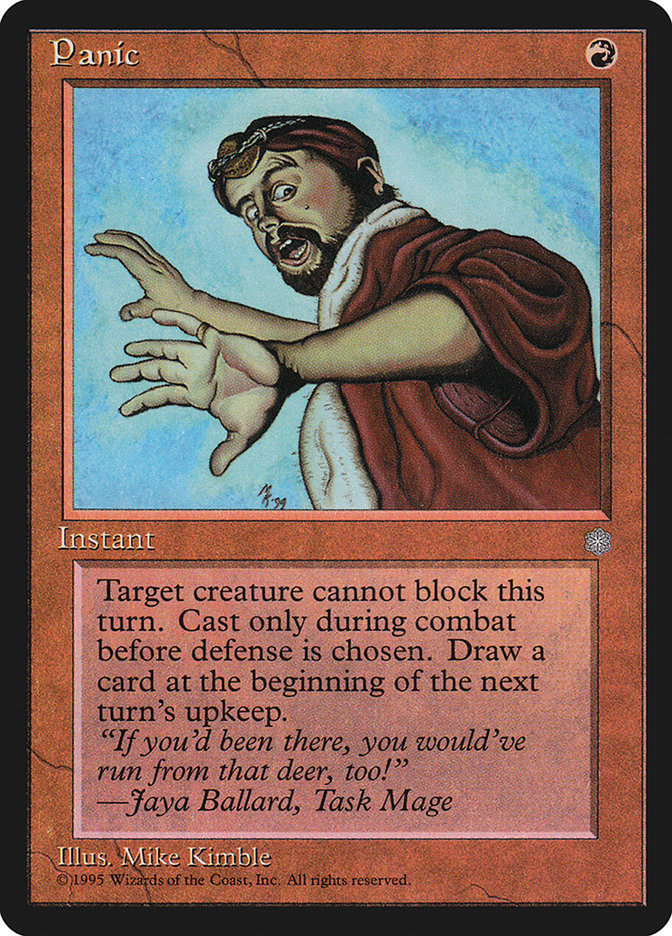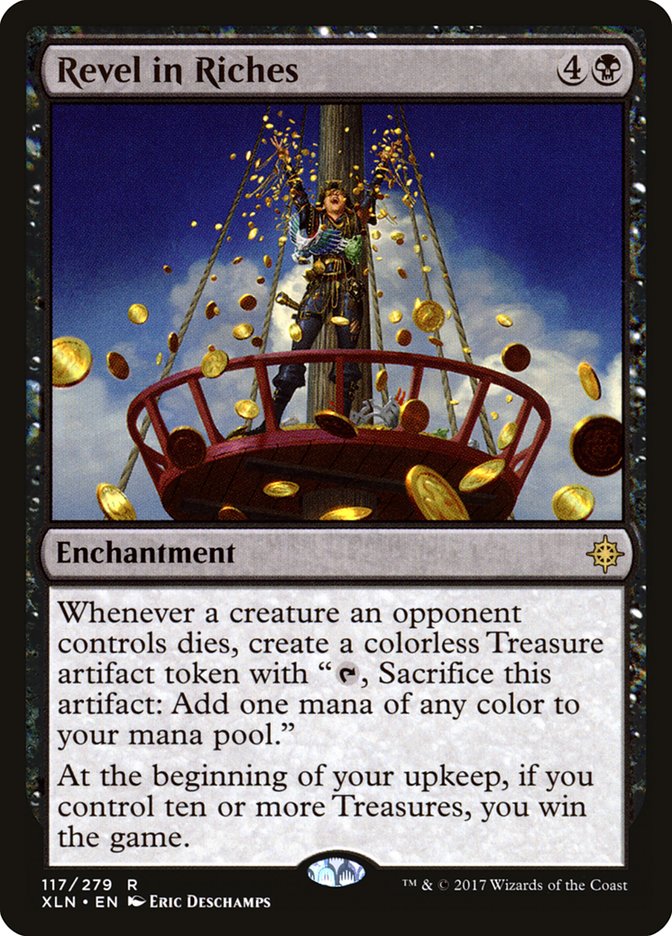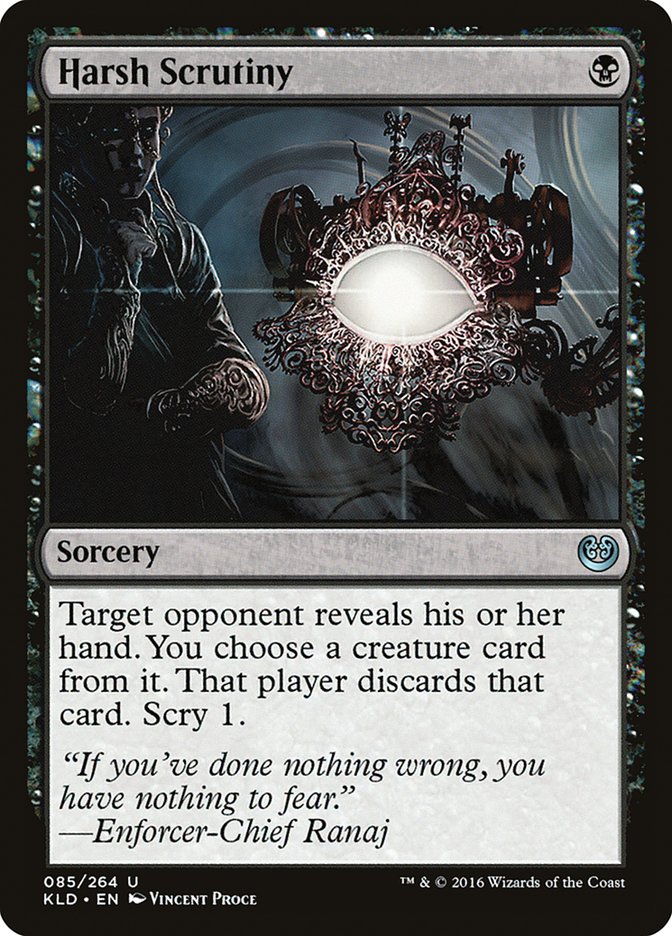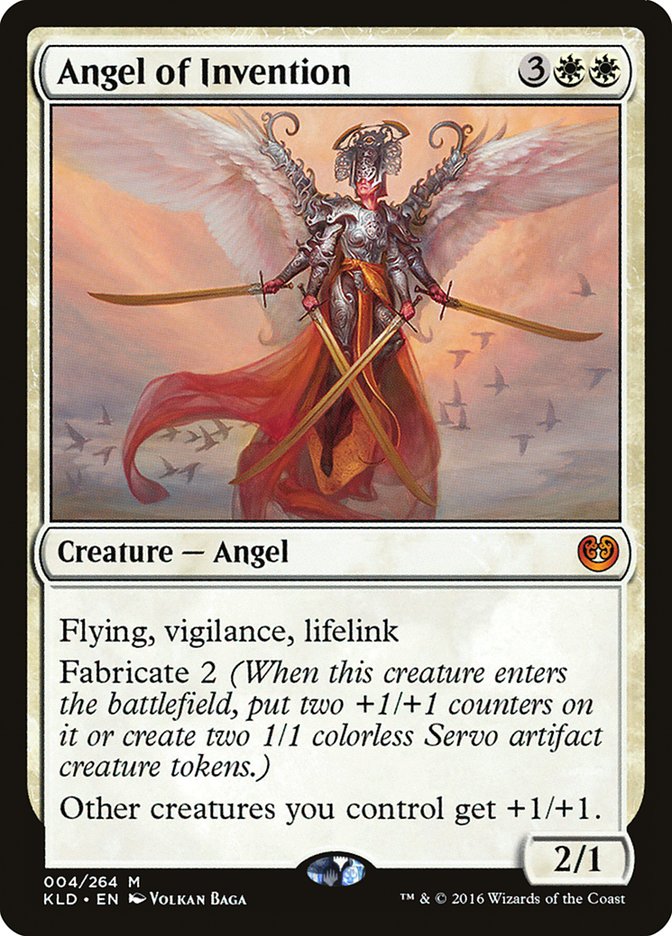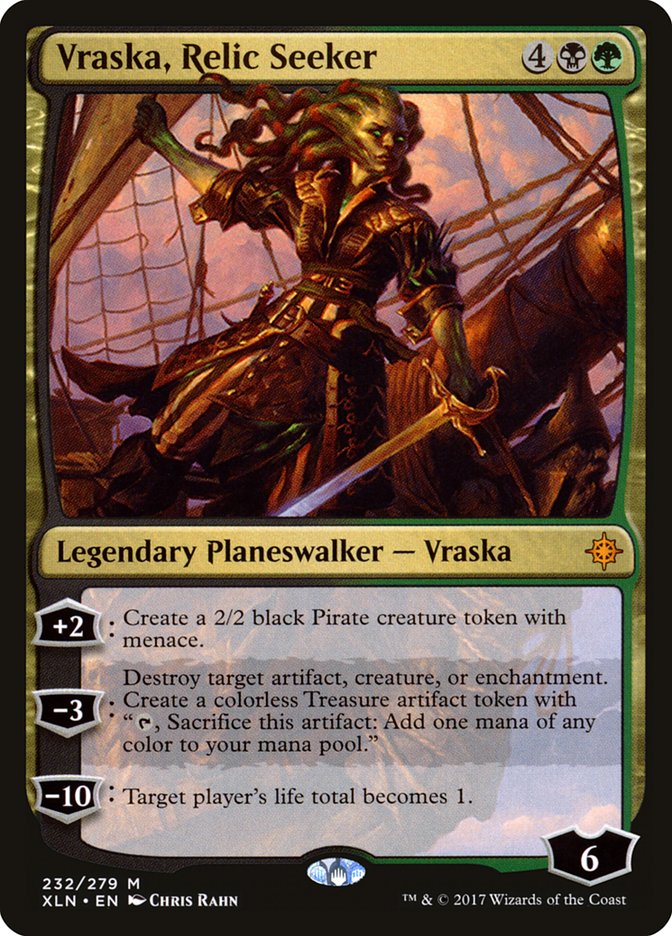A few caveats before we begin:
First, this article is a direct response to Brennan DeCandio’s piece that went live today. Our editor felt that it would be interesting and worthwhile to create a dialog between our divergent opinions on the future of digital Magic. Even though I disagree with some of Brennan’s conclusions, I have a huge amount of respect for him as a writer and player. I recommend checking out his piece before starting in on mine.
Second, I want it to be clear that I’m not defending Magic: The Gathering Arena (hereafter “Arena”) or Magic Online because some secret cabal of overlords at Wizards of the Coast or StarCityGames.com asked me to do damage control. I can’t believe I even have to say this, but I’m accused of being part of some vast conspiracy on a near-daily basis, so I feel it necessary to be clear at the top that these are my actual opinions, based on years of education and expertise. You’re welcome to disagree with me, but accusing me of some conspiracy is just a bad look. If you want to see me write an article that’s critical of Wizards of the Coast’s current policies, stop back in a few weeks and read my upcoming piece on the major problems with the Masters sets.
Okay, let’s get to the good stuff.
Step into the Arena
Brennan’s article can be divided into two basic sections. The first is about the advent of Arena, and the second is about the current Magic Online economy.
Let’s talk about the Arena stuff first. After reading his article a couple of times, I feel like I can distill his thesis down into the following three arguments:
1. Magic Online is worse than its digital competitors (Hearthstone, etc.) because the game wasn’t designed to be played online. This makes it a nightmare to code all of the corner cases and complex battlefield states, like arbitrarily large numbers of Deceiver Exarchs. Arena looks better, but it currently seems even less capable of doing these things, which means that the program might never have Modern or Legacy functionality.
2. Forcing players to embrace both platforms (one for Standard, one for Eternal) is going to cause an immense amount of frustration. Who wants to buy the same cards twice? And what happens if wait times increase on Magic Online because half the player base is waiting for an event to start on Arena? And if Arena doesn’t have the same functionality as Magic Online, nobody will be able to use it to prep for major events, which will make it essentially useless for competitive players.
3. Why is Wizards of the Coast introducing an entirely different client instead of just fixing Magic Online?
Brennan is right about why Magic Online is so much worse than the CCGs that were created for digital play. I’ve written about this before, and it was part of the reason why I was so skeptical about Arena before it was revealed to us. And as good as Arena looks, I expect that it’s going to suffer in some ways compared to natively digital games like Hearthstone and Eternal. The only real fix for some of Magic’s online clumsiness involves a bunch of rules changes or simplifications, and it seems like Wizards of the Coast has opted not to go in that direction.
Now, I haven’t been invited to participate in the Arena Beta yet. (Though if I were, I’d probably have to deal with an NDA and I couldn’t write an article like this.) My knowledge of the program comes from the same sources as everyone else—screenshots, community reactions, and a few minutes of streaming footage. From what I’ve seen, though, there doesn’t seem to be anything major that Arena is missing. All the difficult stuff is there: the ability to play things out of your graveyard, casting your spells at instant speed, tapping your own mana, etc. There are some UI elements that people seem to find confusing and counterintuitive, but the bones are there for a client that both looks and plays well.
As for Modern and Legacy, Wizards of the Coast did say that they are going to focus Arena development on the newest cards and formats for now. This makes sense: focusing on Standard and draft will allow Arena to be eSports-ready sooner, and it’s also where they’re least likely to run into major programming challenges.
This doesn’t mean that Legacy and Modern are permanently off the table, though—if Arena is popular, the community will clamor for Eternal support until it happens. They might not be able to program every random Ice Age card right away, but why not all the Masters sets? This is how Magic Online got its start back in the day. If the biggest problem with Arena is the failure to go infinite with a combo or two, I have to imagine that someone will create a workaround. It’s not like Kiki Combo is intuitive on the current version of the client, after all.
Dangerous Duplicates
Brennan’s second argument is worth taking seriously. Last year, I was playing Liliana, the Last Hope in Standard and Modern at the same time. If I had to buy the same card twice—three times if I want paper copies—I would have been incredibly frustrated. Is there any way to prevent this?
Ideally, Wizards of the Coast will create a system where you can either transfer your cards from Magic Online to Arena or store them in some kind of system-neutral database (similar to Pokemon) and use them on either program. This isn’t something I’ve heard anyone from Wizards of the Coast talk about yet, but if the community reaction is strong enough, it’s certainly possible for them to implement. I wouldn’t be surprised if they create a way to input paper cards (or at least coupon codes) into Arena at some point, and this could be part of that system.
If this doesn’t materialize, then yeah, we’ll end up in a world where you’ll have to buy some cards two or three times when Arena comes out. And like Brennan said, this could end up splitting up the online player base somewhat. This sounds scary, but what would it actually mean?
Well, Brennan says it himself: if Arena isn’t capable of providing the same functionality as Magic Online, it’ll be useless for testing. If that happens, all of the pros and semi-pros will collectively shrug and continue using Magic Online. Arena will effectively become the replacement to Duels of the Planeswalkers, a program that most people reading this article probably didn’t think all that much about. It might bring some new blood into the game, but that would be it.
If Arena is capable of providing a fully functional testing environment, however, I have to imagine that a clear preference will emerge. The top pros and streamers will all pick a client for testing and use that. Magic players are notorious min/maxers, and I can’t imagine there will be a 50/50 split between clients followed by a bunch of slow-to-launch Leagues. 70% of the community will pick Magic Online or Arena, and the rest will follow. If they pick Arena, that will likely mean having to buy some cards multiple times. I’m not looking forward to this, but it’s certainly not going to doom the client.
The Great Disrespected Relic
Brennan’s final question about Arena is the easiest to answer. Magic Online is a dinosaur, and we all know it.
It struggles to do some really basic tasks due to how much of a tangled mess it is, which means that even something as seemingly simple as changing the font to Beleren (one of Brennan’s suggestions) would probably require re-formatting every single card by hand. Magic Online doesn’t even have an integrated rules system—each card is programmed one at a time. This is insane. Fixing it would require completely rebuilding the client from the ground up.
So they did exactly that, only the rebuilt client is called Arena instead of Magic Online 5.0 or whatever.
Why not just scrap Magic Online and force everyone (and their collections) onto Arena?
Here’s an analogy that might help explain things:
Back in 2008, Apple announced the MacBook Air. It was the thinnest, lightest laptop on the market, or at least close. The only problem? No DVD drive. Back in 2008, operating systems and important programs were still primarily released on DVD, and steaming TV and movies weren’t nearly as big a thing as it is now. Some Apple users were ready to give up their optical drive, but most weren’t. That was okay, because most of Apple’s new laptop line still had their DVD drives. The changeover was gradual, and the shift only became mandatory four or five years later. At that point, we had gotten used to life without optical media.
Compare that to Apple’s much-maligned decision to remove the headphone jack from their phones in 2016. It was a similarly bold move, and I expect that wireless headphones will be common enough in four or five years that we won’t remember why it seemed outrageous. But the difference was that this time around there was no option to buy a new iPhone with a jack. You either had to opt in or go pound sand. As a result, a lot of ticked-off customers ended up switching to Android.
Magic Online is a big deal for Wizards of the Coast. I imagine it makes them quite a bit of money. Forcing everybody to immediately adopt something radically different without the same level of Day 1 functionality (in this case, Eternal support and the stability of a client that has been around for more than a decade) would cause a riot. How upset would you be if Magic Online was closing down and Arena didn’t allow you to play Legacy, Cube, or Vintage?
It also doesn’t make sense to hold Arena back for years until the dev team can program in every card from every set. Heck, we still don’t know if the community will embrace it as a Magic Online alternative—it might be clunky and bad, in which case we’ll all go back to Magic Online. By continuing to support Magic Online in the meantime, Wizards of the Coast is able to hedge their bets in case Arena flops while also giving them some time to get their new client up to speed.
This dovetails nicely into our discussion of Brennan DeCandio’s second thesis, which is that Wizards of the Coast is deliberately sabotaging the Magic Online economy in order to make the switch to Arena more palatable. Here are his arguments as I see them:
1. The current sale on Play Points is devaluing everyone’s other Magic Online assets, including Event Tickets and singles. Wizards of the Coast is doing this in order to wring the last few drops of value from the Magic Online player base while simultaneously dissuading people from investing in digital cards right now. That way, they’ll be ready to hop into Arena.
2. Some companies are starting “card rental” programs on Magic Online, which will also reduce the overall demand for digital singles.
Let’s deal with the second point first, because I don’t think it’s especially relevant to the rest of Brennan’s argument. Companies have been trying to set up Magic Online card rental companies for years, so it’s not really a reaction to Arena. Mana Traders is the big player in this field right now, and with them you’re basically paying one-tenth of the cost of each card you rent per month. Since most of the top decks in Standard are between 250 and 350 tix, you’re probably locked into their $35/month tier, which is expensive but not outrageous.
Things get worse from there. A cheap Modern or Legacy deck will cost you $60/month, and an expensive one is $100/month, Of course, renting Eternal cards is silly because they hold their value well – if you’re renting, it’s to avoid thinking about depreciation. It’s possible that more people will decide to rent their standard decks for $35/month and bypass the secondary market entirely, but Mana Traders still has to get the cards from somewhere, right? An increase in the card rental market won’t hurt the Magic Online economy any more than an increase in the apartment rental market doesn’t hurt the value of your home.
The sale on Play Points is more interesting, and it’s worth exploring in greater detail.
First, let’s talk about what Play Points actually do. Unlike Event Tickets, you can’t trade Play Points on the secondary market. That means that you can’t use them to buy singles, booster packs, set redemption tokens, etc. They’re for entering events—that’s it. If you want to turn your bounty of cheap Play Points into secondary market value, you’re going to have to play in a whole lot of tournaments.
Second, the Play Point discounts aren’t that extreme unless you buy a lot of them. The normal exchange rate of a Play Point is about ten cents, so ten Play Points equal one dollar. Right now, you can buy 240 play points for $24 ($0.10/ea), 480 play points for $45 ($0.093/ea), or 1200 play points for $100 ($0.083/ea). If you want to play Magic Online for 83 cents on the dollar, you need to do it $100 at a time.
There are probably some tournament grinders who will drop a grand on Play Points, but I can’t imagine it’ll be a large number of players. In doing so, they’ll be saving about $170. Good for them. Most people don’t have that much money to drop on Play Points. Heck, finding someone willing to drop $100 in one go (for a total savings of $17) may prove difficult. This deal isn’t even going to be around for long—it’s ending on January 19th, and it seems mostly designed to help stimulate the economy a bit during the holiday season. I expect the addition of more Standard staples and complete sets to Magic Online treasure chests will affect the market more than this sale will.
But is this just the first drop in a pretty scary bucket? Brennan makes an interesting point about the idea of Magic Online effectively having a sale on their own currency, likening it to the US government allowing you to pay less than $1 for four quarters. This isn’t a very apt analogy, though, since I can immediately use four quarters to go back and buy a dollar bill. I can’t use Play Points to purchase dollars, or Event Tickets, or singles, or anything else I can sell to game the system. The truth is that most games have sales on their in-game currency all the time, especially to incentivize large purchases. The weird thing is that Wizards of the Coast hasn’t done this before.
In fact, Magic Online putting Play Points on sale instead of Event Tickets tells me that Wizards is being very careful with their in-game economy. Remember how we were all sort of confused as to why Magic Online introduced a second currency at all? We joked around, calling Play Points “Itchy and Scratchy Money” because of its inability to be used on the secondary market. Well, now we have an answer. By selling Play Points at a discount, Wizards of the Coast can stimulate the event market a bit (and make money in the process!) without making too much of an impact on the price of your collection. It’s pretty shrewd.
But hasn’t the Play Point sale already impacted the secondary market? Not really. Cardhoarder, one of the biggest bot chains, did temporarily lower their ticket buy price to $0.83 in response to the announcement, but they raised it back up to $0.89 the following day. Magic Online Traders, another major bot chain, is still buying tickets for $0.93, same as before the announcement. The singles market hasn’t budged since before the announcement, with only minor (and expected) fluctuations within each format. There is just no evidence that the Play Point sale is causing a market crash right now.
Speaking of spurious accusations, I can’t follow the logic that Wizards of the Coast would deliberately sabotage Magic Online in order to drive players over to Arena. It makes no sense to me. First, Arena isn’t even ready yet. If Wizards of the Coast decided to incinerate everyone’s Magic Online collections tomorrow, why would they stick around and wait for yet another Wizards of the Coast product instead of bailing for Hearthstone or Eternal?
Heck, even if it was ready, why would anyone invest in another Wizards of the Coast product after that? Companies don’t generally want their customers to resent them. That only works if you’ve got an oligopoly on something that people can’t live without, like the cable companies or airlines. Would it really be worth angering hundreds of thousands of customers in order to make a couple of extra bucks on Play Point bundles?
In fact, this is a big part of why I continue to believe that your Magic Online collection will continue to have value, even though I hope that the client will eventually be replaced by Arena.
First, Arena is going to have some growing pains. Heck, we’re barely in Alpha testing right now. Best-case scenario, we’re a year away from Arena being the go-to platform for Standard play and at least two years away from Modern functionality. In the meantime, Wizards of the Coast is going to keep supporting Magic Online because 1) they don’t want to upset everyone with massive Magic Online collections, and 2) Magic Online makes them a ton of money. Even on this timeline, your collection is going to be devalued twice-over by rotation, format shifts, and reprints before you lose out to Arena.
Second, we don’t even know if Arena is going to be all that and a bag of chips. If it falls short—and it very well might—Magic Online will continue to be the only place to test and practice tournament Magic for years and years to come. Magic Online might be ugly and buggy, but it does more or less do its job. Arena is still something of an unknown.
Last, why are we assuming that Wizards of the Coast won’t let us port our collections over if and when Magic Online is shuttered? Wizards of the Coast knows that we’re anxious about our digital assets. They know that we’re only going to spend real money on fake cards if we feel like they’re not all going to disappear one way. The best way to instill market confidence in Arena? Allowing us to do some sort of collection transfer or cash out of Magic Online. They don’t want to crash the market—they want to keep it vibrant for as long as possible.
Chances are, Magic Online won’t exist in 2025. If you don’t use your Magic Online collection much, cashing out is always going to be the safest option. Ditto for your paper cards, or any collectible, really. But Magic Online isn’t dying, and I don’t expect Arena to be dead on arrival, either. Things are a tad uncertain right now, but that doesn’t mean they’re bad. Tempered optimism isn’t as flashy as doom-saying, but that doesn’t mean it isn’t correct.
This Week’s Trends
Apparently I have to continue to debunk people’s doomsaying this week, because there’s another silly rumor floating around online.
It began with an offhanded comment in a Mark Rosewater blog post that referenced the fact that there are just 12 million active Magic players right now. A few years ago, though, Wizards of the Coast boasted that the game had 20 million players. If these numbers were measuring the same thing, this would be a crazy drop—8 million players lost in just a couple of sets! A few YouTubers (whose names I won’t mention because their channels don’t deserve hits) did this math and decided to shout about the game’s total collapse.
Only there was no collapse. Mark Rosewater said a couple of times that the player base hasn’t dropped—he just used a different figure, measuring active players versus whatever “product adjacent” figures they use for marketing purposes and investor calls. It’s worth being a little concerned that Magic’s player base probably isn’t growing the way it did from 2007-2014, but I highly doubt that number is dropping, and it certainly hasn’t dropped by anywhere near 40%.
Again, just because something sounds sensational doesn’t mean that it’s true.
Moving on to brighter topics, if you have one of the HASCON promo sets, now might be the time to think about selling it. After sitting in the $40 range for weeks, it’s selling between $130-$150 on eBay now. It might gain a little more value from here, but the product is hot right now and I don’t hate the idea of just cashing out while the iron is hot.
The Standard index hasn’t changed much since last week. Angel of Invention; Nissa, Steward of Elements; and Hazoret the Fervent are up a little, while Vraska, Relic Seeker; Gideon of the Trials; The Scarab God; and Chandra, Torch of Defiance have all dropped a bit.
Standard will probably continue to lose value as the holidays approach, so it’s not quite time to buy yet. You can sell if you want, but just know that most of these cards will probably rebound in mid-January.
Modern hasn’t seen much movement besides the fact that Iconic Masters is out, and some of those prices have begun to fall off a bit. While I’m not a fan of the set from a design perspective (or a “Masters set every six months” perspective), there are a lot of good cards in there. Since everybody just wants four or five singles without having to open packs, there’s a reasonable chance that boxes are being undervalued relative to their content. I wouldn’t pay retail for these, but if you can get ’em for a few bucks under, it’s not the worst call.
If you’re just after singles like Horizon Canopy or Mana Drain, I’d wait two to three weeks and then buy in. The price is still falling, but it should hit bottom pretty soon. If Iconic Masters is underprinted relative to demand, we might see some of these cards rebound as soon as mid-January. Again, late December is just a stellar time to buy Magic cards.



